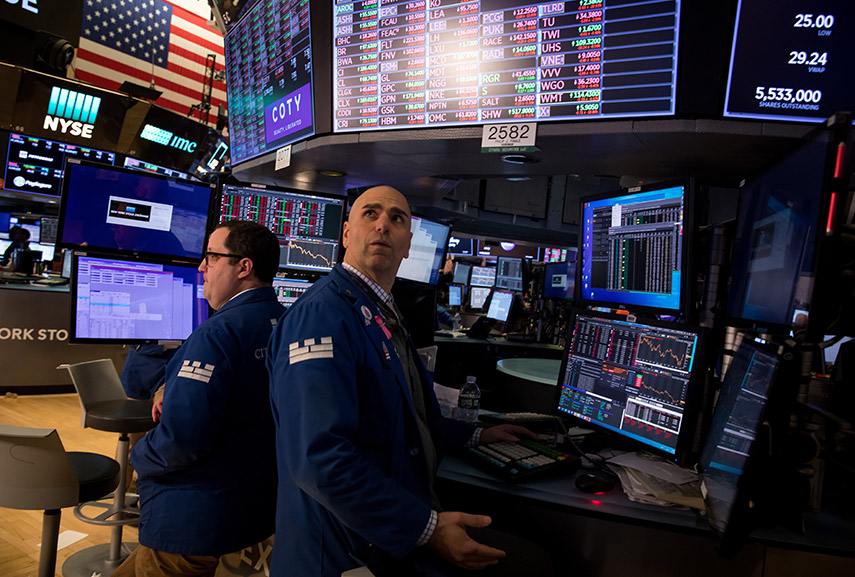After a bumper November for investors, 2023 looks like delivering a healthy bounce from last year’s disappointment. The MSCI World index, which captures the performance of global stocks, has risen by more than 10% over 12 months. The S&P 500 has done twice as well, up by around a fifth since the turn of the year.
If you had chosen to access that market rally through an investment trust, the longest-running type of collective investment and a favourite of more sophisticated investors, you may not have enjoyed 2023 to quite the same extent. Of the 392 trusts listed on the Association of Investment Companies (AIC) website, around 220 have lost money for investors over the past 12 months.
In around a quarter of those cases, however, the trust’s share price has fallen despite its manager achieving growth in the value of its underlying investments. The share price has fallen not because of poor investment performance but because of a widening in the gap between the value of the trust’s assets and the price of its shares in the market. In the jargon, its discount has increased. In 70 of those 392 trusts, the shares are priced more than a third below the asset value.
There are many reasons to like investment trusts. They have access to a permanent pool of capital in a closed-ended structure which means that, unlike an open-ended fund, they do not have to meet daily redemptions. This means they can be a great way to invest in more illiquid assets like property, infrastructure or smaller companies.
They can also borrow money to juice up their returns when markets rise. And because their shares can trade at either a premium or, as now, at a discount to the value of their underlying assets, savvy investors can sometimes enjoy a double whammy as rising prices are magnified by a narrowing of the gap between a trust’s share price and its underlying book value.
Independent boards of directors ensure that someone is watching out for investors’ interests – and one of the ways they do this is to keep an eye on this discount and take action to reduce it if it gets too wide.
Unfortunately, some of the advantages of the investment trust structure can work in reverse. And this year they have done that to an unexpected degree. Most obviously, that discount to asset value has not narrowed, as you might expect it to in a rising market in which sentiment is improving. Instead, it has widened to a degree not seen since the financial crisis in 2008.
There are a number of reasons for this. The first is that some investment trusts are particularly vulnerable to the rise in interest rates that has been central banks’ response to unexpectedly persistent inflation. The illiquid assets that many trusts focus on, property and infrastructure in particular, have seen their values fall sharply as investors have favoured more liquid sources of income like bonds and even cash. Because many of these assets are valued infrequently, investors have also erred on the side of caution, taking the most recent asset value with a pinch of salt. The ability to borrow money, leveraging up the capital raised from investors, has also been a challenge in a higher interest rate environment.
Another driver of wider discounts this year has been a change in the guidance about how wealth managers should report their fees to clients when their portfolios include holdings in investment trusts. When an open-ended fund holds shares in an investment trust, it is obliged to add on the trust’s management fee to its own total cost figure. This is unfair to investment companies and effectively double counts their costs. The internal costs of an ordinary commercial company are factored into its share price, and you might reasonably question why an investment trust should be any different in this regard.
The consequence has been a disincentive for traditional buyers of investment trusts to invest in them, which has led to wider discounts than would otherwise be the case. The good news is that the government has asked the Financial Conduct Authority to resolve the issues around cost disclosures. In due course, this problem may go away.
The widening of discounts has not gone unnoticed by investors, professional and personal, who have started to see the historically large gap between share price and asset value as an opportunity. Some US hedge funds clearly see this corner of the UK market as a quick win and have snapped up stakes in a number of trusts.
For their part, investment trust boards are not sitting back and hoping that the discounts will magically disappear. Most trusts have a discount management policy, and they seek to narrow the gap when it gets too wide, usually by buying back shares. While this cannot put a floor under the price, it certainly reduces the risk for an investor buying into a trust at a significant discount.
Whether this means that the recent widening of discounts has run its course is open to debate, but the odds are improving the wider discounts become. Similar periods of historically wide discounts – after the bursting of the dot.com bubble, in the wake of the financial crisis, after Brexit and in the early days of the pandemic – led to subsequent periods of outperformance by investment trusts.
Simply buying a trust on the basis of its discount is a blunt tool. There may be good reasons why its shares should be priced below the reported level of its assets. But for anyone looking to get exposure to a market or sector anyway, being able to do so at such an unusually large discount looks like a rare opportunity.
It’s important to feel empowered about investing. So, if you’ve got a burning question you want to ask? Why not drop us a line. Click here to ask an expert your question.
Source : Fidelity


